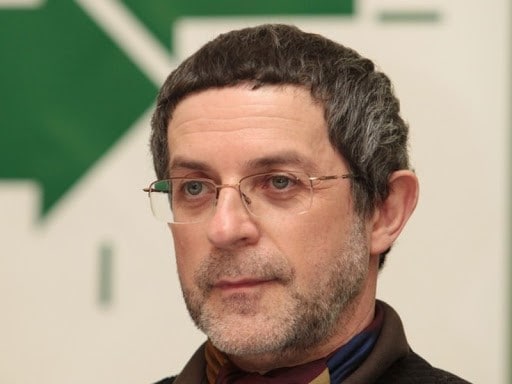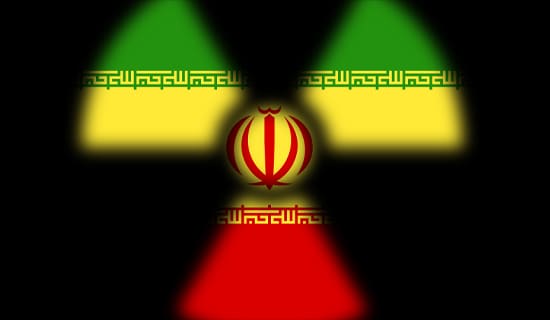Putin rescued Russia from the cursed decade of the 1990s is perhaps the most powerful argument marshalled by Putin's supporters when they defend the current regime. Russia, after the collapse of the Soviet Union in 1991, went into an economic tailspin and the people suffered terribly. Boris Yeltsin presided over this collapse, and was supported by oligarchs who had snapped up Russia's natural resources at bargain prices. The message behind this argument is twofold: Putin rescued Russia from all this and if you reject Putin you could conceivably return to the nightmare 1990s.
The lead columnist for the popular Russian news outlet Rosbalt, Sergei Shelin, takes aim at this justification for Putin by arguing that after the coronavirus, Russia has been restored to the nightmare decade in terms of impoverishment. Putin may be in better physical shape than his predecessor Yeltsin, but he too has overstayed his welcome and must resort to every trick in the book to stay in power.
Shelin's article follows below:[1]

Sergey Shelin (Source: Profkomfti.spb.ru)
"The regime violated its main promise: to protect the people from the horrors of the 'accursed decade'. We live in it once again.
"Of course, [the return to the 90s has not begun today]. For example, the standard of living went downhill seven years ago. But such a huge number of newly impoverished, who until quite recently were quite prosperous people is the current year's phenomenon. The vertical of power is becoming unscrewed, and the high officials are immersed in their own interests and activities, which are strange to the citizens and these too are new phenomena.
"It's easy to blame everything on the epidemic and lockdown [self-isolation regime], though these two events accelerated what was brewing in the country even without them.
"The main governmental promise of Putin's twenty years [in power] was an unwritten statement: the 90s will not return. This decade demonized by the population and called 'accursed,' should have served till the end of time as the backdrop for a new life (bestowed by Putin): a prosperous, orderly and pleasantly old-fashioned way of living. All other regime achievements, from “[Russia's] getting off its knees to the West” to 'the restoration of the empire' in several small areas, were only add-ons to this main thing. No wonder the official 'vilification' of the 90s became more persistent and louder, as their living memory waned.
"But history played a joke on the regime and its leader.
"Our contemporary reality appears to increasingly resemble the 90s on several main points, even though it is not exactly the same."

Does Putin increasingly resemble the man he succeeded – Boris Yeltsin? (Source: Ria.ru)
"1. Familiar welfare standards were broken. People could still muddle through a one-eighth drop in income during 2013 – 2019 and perceive it as a temporary difficulty. But the equal drop in this year alone, and in aggregate by a quarter from the peak years of prosperity made all declarations about the growing standard of living meaningless. From 1990 to 1999, real income fell by 50%. However, the notion that impoverishment was an integral feature of the system back then, developed much faster, and now something similar is happening.
"2. Masses of people must rediscover their place among the ruins [of the economy]. Only those who are directly or indirectly associated with the public sector are today at ease about their income and jobs. The lockdown [self-isolation regime] left the rest without legal earnings, and the authorities were left without material and moral support. The lifting of epidemic restrictions will for many Russians only constitute permission to return to the “ruins” [of economy] and start all over again. Perhaps they will not be as scared as their parents were during the 90s, whom thrown into total uncertainty during the transition to a free market. But the current generation will also blame the regime for their troubles. Moreover, it [the current generation] knows how much fuller the treasury is now than it was a quarter of a century ago.
"3. Oil is again cheap. This paragraph does not need detailed explanations.
"4. The mediocrity and antisocial spirit of the economic and institutional managers. During the 90s, the 'red [Communist holdover] directors', whose 'management style was distinguished by authoritarianism, incompetence in legal and financial matters and by an unreadiness to operate in market conditions', were a social scourge.
"And today, almost all managers who have emerged during twenty years of Putin are categorically unready 'to operate in market conditions'. They were not promoted for that skill. But the 'critical mass' of incompetence accumulated over the years.
"Only now, in difficult times, everyone sees what a burden they imposed on the country's shoulders. Systemic corruption is just a part of their professional unfitness, and perhaps not even the worst one. The info that the fabulously expensive Gazprom super-project 'Power of Siberia' is a scam[2] reveals only the very edge of semi-public economic life. And the difference from the 1990s does not favor the 2020s. At least they tried to push the 'red directors' out of their posts. The 'Putin directors' of companies and government agencies have never been fired. Even today they are confident of the stability of their positions.
"5. The self-enclosed top circle of power which does not enjoy public confidence. In the mid-90s, this circle was not chummy and consisted of security 'siloviks' (such as [Yeltsin's bodyguard and adviser Alexander] Korzhakov), 'oligarchs' (like [Boris] Berezovsky) and 'reformers' (like [Anatoly] Chubais). The reasons for the acute unpopularity of all were very different, but the fact of popular antipathy to them was generally acknowledged and was acutely experienced by some of them.
"Now the tycoon community is much more homogeneous. One won’t immediately understand how, any given ex – 'silovik', and now an oligarch (for example, [oil magnate Igor] Sechin), differs from one or another ex-reformer, and now a political designer (for example [Putin's deputy chief of staff Sergei] Kiriyenko). But their collective public appreciation is constantly deteriorating. However, unlike their predecessors, this trend is unknown to current tycoons. Surprises await them.
"6. An overstaying president. People almost forgot about it, but in the late 90s, hardly anybody doubted Boris Yeltsin’s desire to somehow rewrite the rules and perpetuate his power. This alleged desire to remain the head of the state was a constant topic of public discussion and strongly angered the people.
"Vladimir Putin reached the age of the Yeltsin of then [when he was a president], comparing favorably via his health condition and tolerable rating. But there are no signs that the average person wants to see him as an eternal ruler. The bustle at the top, aimed at organizing Putin’s irremovability, arouses in citizens the same type of irritation, that the fuss around Yeltsin’s reign caused. This irritation is not as great as it was then, but it will only grow.
"The 2020s are starting to look as the second edition of the 1990s, although those in power and people have yet to feel it.
"So, upon their new beginning, these are the [same] 90s, but without freedom, without hopes for a bright capitalistic future, which were strong at the beginning of the previous decade, and without aspirations for a 'strong hand'. But the Putin system’s attempt to destroy everything that happened in those days led the country to historical failure. So, the country will have to go walk the same path again."








